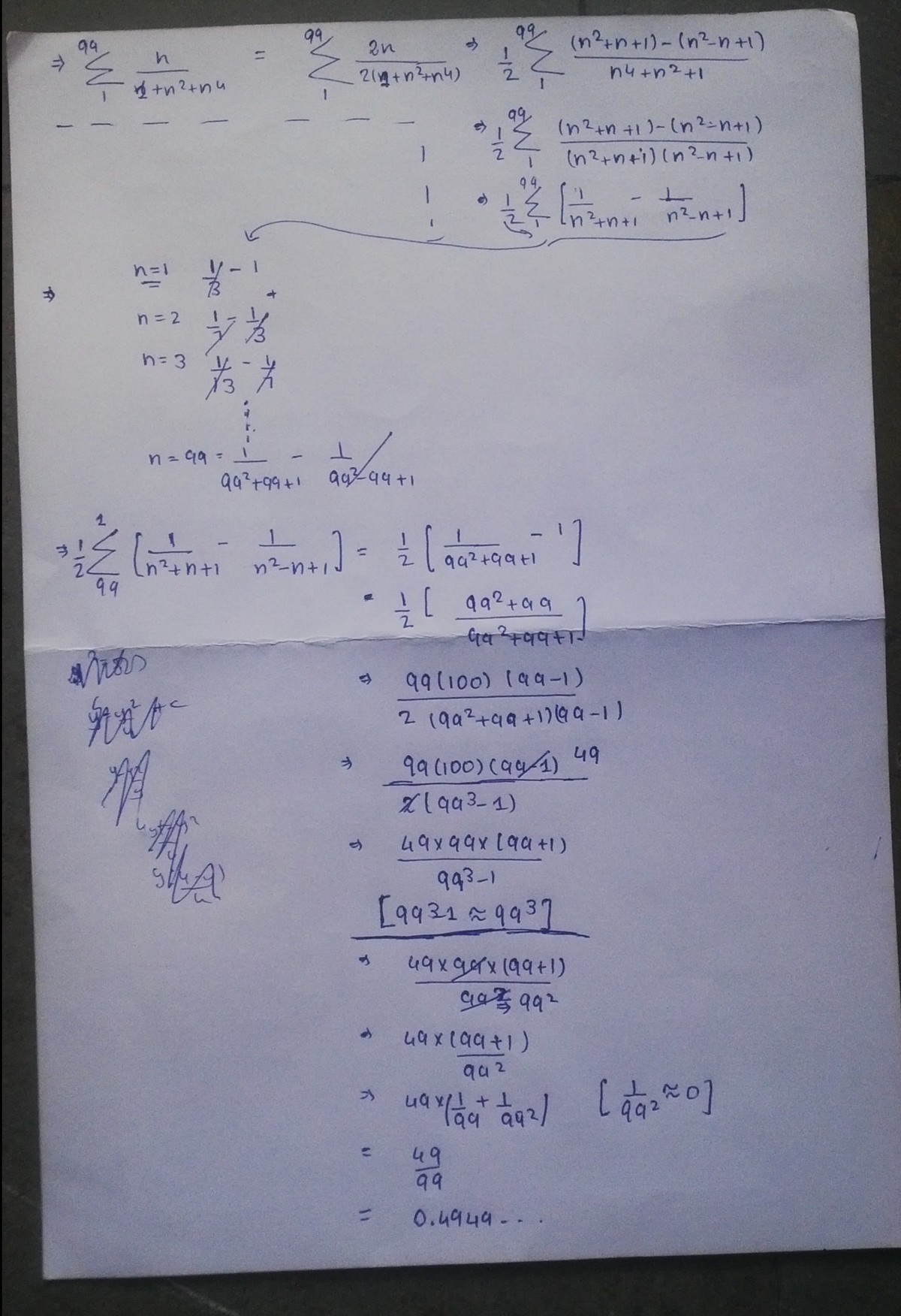one of NTSE's best # 1
x = 1 + 1 2 + 1 4 1 + 1 + 2 2 + 2 4 2 + 1 + 3 2 + 3 4 3 + ⋯ 1 + 9 9 2 + 9 9 4 9 9
What values does x lie in between?
This section requires Javascript.
You are seeing this because something didn't load right. We suggest you, (a) try
refreshing the page, (b) enabling javascript if it is disabled on your browser and,
finally, (c)
loading the
non-javascript version of this page
. We're sorry about the hassle.
2 solutions
I liked the coloring of this solution. Nice sir.
Log in to reply
Thanks. Glad that you like it. No upvote?
Log in to reply
Upvoted ! Initially i didn't remember to upvote it.
Sir, in the fourth last step, could you explain the red coloured where you changed the bounds from k=2 to n+1 .

x = k = 1 ∑ n 1 + k 2 + k 4 k = k = 1 ∑ n ( k 2 − k + 1 ) ( k 2 + k + 1 ) k = 2 1 k = 1 ∑ n ( k 2 − k + 1 1 − k 2 + k + 1 1 ) = 2 1 ( k = 1 ∑ n k 2 − k + 1 1 − k = 1 ∑ n ( k + 1 ) 2 − ( k + 1 ) + 1 1 ) = 2 1 ( k = 1 ∑ n k 2 − k + 1 1 − j = 2 ∑ n + 1 j 2 − j + 1 1 ) = 2 1 ( k = 1 ∑ n k 2 − k + 1 1 − k = 2 ∑ n + 1 k 2 − k + 1 1 ) = 2 1 ( 1 2 − 1 + 1 1 − ( n + 1 ) 2 − ( n + 1 ) + 1 1 ) = 2 1 ( 1 − 1 0 0 2 − 1 0 0 + 1 1 ) where n = 9 9 Note that k 4 + k 2 + 1 = ( k 2 − k + 1 ) ( k 2 + k + 1 ) Note that k 2 + k + 1 = ( k + 1 ) 2 − ( k + 1 ) + 1 Let j = k + 1 Replace j with k Putting back n = 9 9
Therefore, 2 1 − 1 0 0 1 < x < 2 1 ⟹ 0 . 4 9 < x < 0 . 5 0